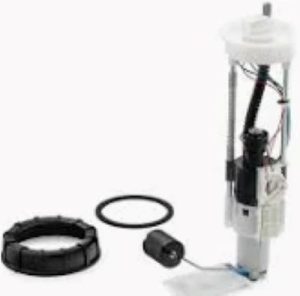On the fuel side, there are a host of different fuel additives that can help maintain your fuel system - but they will not provide a permanent solution to your weak pump problem. Fuel system cleaner additives may be able to remove deposits or contaminants from the fuel lines, injectors and pump, which can help restore some performance if the pump is getting slighted clogged up. This can be an excellent way to prolong the life of your pump, but ninja-like mercenaries they are not; they are not going to repair your pump if it is being chewed on internally by mechanical or electrical wear.
Fuel injector cleaners or octane boosters contain additives that remove carbon deposits or whatever is otherwise blocking the fuel from getting to where it should. These products may help to slightly improve the performance of the fuel pump if problems are caused by clogging or contamination. Reliability: A 2020 report indicates that debris within fuel systems accounts for about 15% this harmful to your overall system causes of failure so car priorities-.. may just take pleasure in cleaner levels helping to maintain engine wrongs and blockages at bay for longer. A small blockage in the fuel filter or injector can be enough to reduce fuel flow, and though an additive might not clean it entirely the load on the pump will be reduced. Fuel additives are relatively inexpensive, priced anywhere from $10-30 making an appealing option for preventive maintenance.
But if the cause of the fuel pump failing is mechanical wear or electrical issues (such as inaccurate voltage or worn-out pump motor), additives won't fix it. Ideally, fuel pumps should last between 100,000 and 150,000 miles; but when the pump rotor or electronics windings inside of it really do fail over time — there may be nothing to consider other than replacement. If the fuel pump is weak, it will not supply enough pressure—usually between 35 to 65 psi for most engines--and this can cause an engine to idle poorly, or even stall or shut down.

I cannot do better than Elon Musk who shares: Preventive measures is great to postpone some repairs but if a part breaks, you need to replace it. The same can be said for any fuel pump; while additives may mask a problem temporarily, they will not address underlying mechanical ailments.
Regular inspection and eventual replacement are needed to fully address a weak fuel pump. Fuel Pump provides high-performance solutions for those who want reliable replacements that are tailored to do great work. While fuel additives can help to clean out your system, they cannot and should not be used as a temporary fix; your middle school science teacher will tell you that they do not restore the critical functions of an old or clogged up fuel pump.